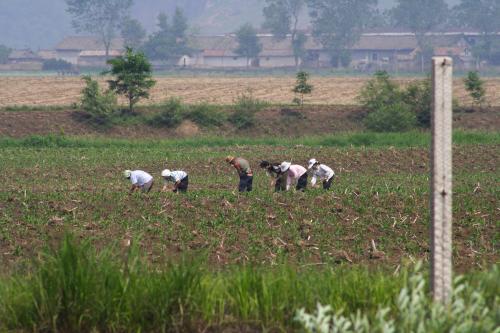The GEOGLAM Crop Monitor bulletin on the current poor harvest conditions was recently cited by the BBC in their report on declining crop harvests in North Korea, resulting in increased food shortages throughout the country. The BBC references the most recent (November 2019) Crop Monitor report, which details the declining crop production in the "cereal bowl" region of the Korean peninsula and notes the below-average quantity of crops in this year's harvest in North Korea's southern provinces. The international Crop Monitor is managed by the NASA Harvest program in the Geographical Sciences Department and is coordinated by Christina Justice, Brian Barker and Inbal Becker-Reshef (NASA Harvest P.I.).
GEOGLAM, an initiative commissioned by the G20 Heads of States as part of the Action Plan on Food Price Volatility and Agriculture, developed the Crop Monitor reports which provide global crop condition assessments in support of the AMIS market monitoring activities. The first issue of the Crop Monitor appeared in the September 2013 issue of the AMIS Market Monitor. As a result of the success of the AMIS Crop Monitor, GEOGLAM developed the Crop Monitor for Early Warning in 2016, bringing together international, regional, and national organizations monitoring crop conditions within countries at risk of food insecurity.


